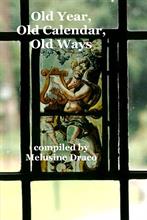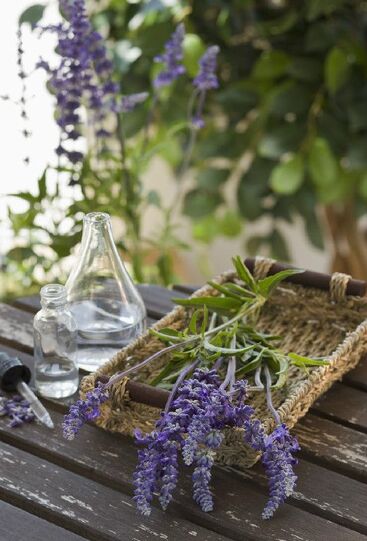
1st Lammas or Lughnasad the harvest season traditionally used to begin on 1st August and was called Lammas, meaning ‘Loaf Mass’ when farmers made loaves of bread from the new wheat crop and gave them to their local church; Lughnasadh, the Celtic feast day of the god Lugh. Today: Celebrate the day by serving a lunch accompanied by new crusty bread, which should be broken apart by hand.
Lammas Day (Anglo-Saxon hlaf-mas, ‘loaf-mass’), is a holiday celebrated in some English-speaking countries in the Northern Hemisphere, usually between 1st August and 1st September to mark the annual wheat harvest – the first harvest festival of the year. On this day it was customary to bring to Church a loaf made from the new crop, which began to be harvested at Lammastide. The loaf was blessed, and in Anglo-Saxon England it might be employed afterwards to work magic: a book of Anglo-Saxon charms directed that the Lammas bread be broken into four bits, which were to be placed at the four corners of the barn, to protect the garnered grain. In many parts of England, tenants were bound to present freshly harvested wheat to their landlords on or before the first day of August. In the Anglo-Saxon Chronicle, where it is referred to regularly, it is called ‘the feast of first fruits’
2nd Lammas marks the date on which the English King William Rufus was killed while hunting in the New Forest in 1100. Some say he was a pagan sacrifice, others claim he was assassinated by order of his brother and successor Henry I. Today: Make a pilgrimage to the Rufus Stone in the New Forest that marks the spot where William Rufus died.
5th Official Start of the Oyster Season: It was said that anyone eating an oyster this day would not lack for money for the remainder of the year. Today: If you don’t fancy raw oysters, try adding them to a beef pie and share the wealth-drawing wish among the family.
7th The Feast Day of Cromn Dubh, the pre-Celtic god of the harvest and the Underworld. He is usually accompanied by two large black dogs. See 28th July. Today: Provide a special treat for the family dog.
12th Old Lughnasadh: Irish: Lúnasa; Scottish Gaelic: Lùnastal; Manx: Luanistyn is a Gaelic festival marking the beginning of the harvest season. Historically, it was widely observed throughout Ireland, Scotland and the Isle of Man. Originally it was held about halfway between the Summer Solstice and Autumn Equinox. Over time, however, the celebrations shifted to correspond to other European harvest festivals such as the Welsh Gŵyl Awst and the English Lammas. Today: Is the day to connect magically with the ancestors for a true Harvest Home celebration.
16th Rush-bearing. In the Middle Ages, before carpets, rushes were used as floor-covering. Many villages held a special summer ceremony when the rushes were harvested. In some villages, they made rush sculptures, called bearings, and carried these in a procession. Rush-bearings are still popular in Cumbria and other parts of north-west England, being held on the 5th of the month.
22nd Anniversary of the Battle of Bosworth and the death of Richard III, last of the Plantagenet kings in 1483. Today: Light a candle in memory since the Tudors were not as sympathetic to practitioners or those accused of witchcraft.
23rd Vertumnalia celebrated in honour of the Roman god of orchards and fruit, Vortumnus, who presided over the changing seasons of the year. Great bonfires were lit at night in his honour and excessive merrymaking took place. Today: Time for a celebration of the fruit harvest with bottles of wine and homemade cordial.
24th [OS] St Bartholomews’ Fair (or the great Smithfield Fair) was held in West Smithfield between 1133 and 1855 – the only real fair to be held within the City of London. The Fair gave rise to two well-known saying: A ‘Bartholomew doll’ referred to a tawdry, overdressed woman like the flashy, bespangled dolls offered for sale at the Fair; and a Bartholomew pig was a very fat person because one of the Fair’s chief attractions used to be a pig, roasted whole and sold piping hot. Today: Possibly the last chance to take the family out for a last treat before the end of the school holidays; especially if older children are leaving for University. Celebrate the new beginnings.
Weather-lore: ‘Thunderstorms after St. Bartholomew [24th) are mostly violent.’
27th Official date for the Roman invasion of Britain by Julius Caesar in 55BC. accompanied by 10,000 men of the 7th and 10th Roman Legions. According to archaeologist, Francis Pryor, all the Romans can take credit for was wiping out a 10,000-year old island culture quite unlike any other in the ancient world! Today: Perhaps this is a time to remember those who perished attempting to repel the Roman invaders.

 RSS Feed
RSS Feed